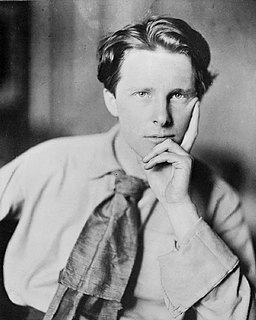A Quote by Ralph Waldo Emerson
Though love repine, and reason chafe, There came a voice without reply,- "'Tis man's perdition to be safe, When for the truth he ought to die."
Related Quotes
There are no words and there is no singing, but the music has a voice. It is an old voice and a deep voice, like the stump of a sweet cigar or a shoe with a hole. It is a voice that has lived and lives, with sorrow and shame, ecstasy and bliss, joy and pain, redemption and damnation. It is a voice with love and without love. I like the voice, and though I can't talk to it, I like the way it talks to me. It says it is all the same, Young Man. Take it and let it be.
Lines I die but when the grave shall press The heart so long endeared to thee When earthy cares no more distress And earthy joys are nought to me. Weep not, but think that I have past Before thee o'er the sea of gloom. Have anchored safe and rest at last Where tears and mouring can not come. 'Tis I should weep to leave thee here On that dark ocean sailing drear With storms around and fears before And no kind light to point the shore. But long or short though life may be 'Tis nothing to eternity. We part below to meet on high Where blissful ages never die.
The law no passion can disturb. 'Tis void of desire and fear, lust and anger. 'Tis mens sine affectu, written reason, retaining some measure of the divine perfection. It does not enjoin that which pleases a weak, frail man, but, without any regard to persons, commands that which is good and punishes evil in all, whether rich or poor, high or low.










































